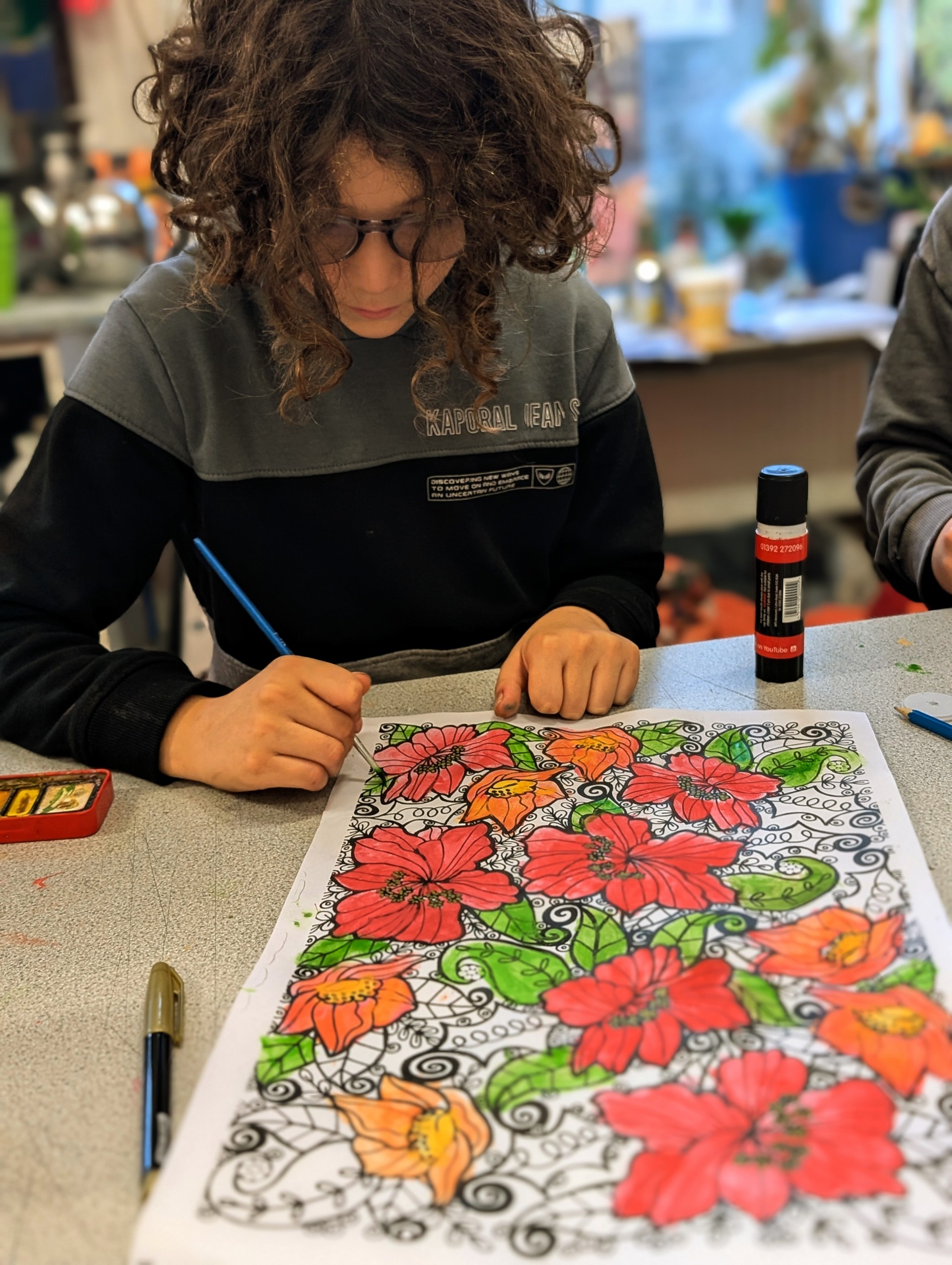Dear Parents, Guardians and Friends,
My Uncle Will always managed to tell jokes with a straight face. The same straight face, however, was used when he was angry, which many found intimidating, including me. Being angry, sometimes, is a form of intimidation. The challenge is to recognise that the angry feelings you experience in me tell you more about me than about you!
Football or rugby?
My apologies to fans, but I find football agonisingly tedious. Rugby on the other I adore watching, having nevertheless a slight concern that, in the professional game, it is in effect, ‘sportified unarmed combat’. Containing anger in rugby, of course, demands huge self-discipline and restraint, and yet aggression is a necessary and encouraged component.
Road Rage
Uncle Will invited me to join him and my cousins to a professional football match at Hampden Park in Glasgow. I was bored stiff and not a little apprehensive at the mob mentality around me that’s so easy to get sucked into. On the way home, at traffic lights, there being a huge post-match traffic jam, Uncle Will’s car stalled and he failed to get the engine restarted. Behind us a red faced man behind the wheel, started thumping his horn and gesticulating wildly. Uncle Will got out of his car, slowly walked to the offending car and knocked on the driver’s window. When it opened, the expletives leaking from the car were plentiful if not rather unimaginative. My uncle put his arm inside; took out the driver’s ignition key and through it down the line of traffic! This brought a veritable symphony of horns blaring down the line of traffic. With Uncle Will angry but satisfied, we drove off, leaving the line of traffic behind dealing with its accumulated anger and an even longer traffic jam.
Poisonous behaviour
For me, this was fun; safely in the back seat of Uncle Will’s car, much better fun than the football, watching and enjoying others being angry with each other. Yes I enjoyed it. After all, the fracas didn’t involve me. The uncomfortable truth is that a surprising number of us enjoy others getting angry with each other, as it doesn’t involve us and further, for some it provides copious material for gossip, exaggeration and hand-wringing. Poisonous! To be honest, I’ve got myself involved in this poisonous behaviour on more occasions than I care to admit. The scene I’ve just described was either infuriating or humiliating or both for all parties, but it was soon over and remains in the memory, occasionally to be recalled out of amusement embellished through the years, of course.
The poison of arguments
However, when two children or two adults have an angry moment, it’s all too easy for the moment to become a long period of sulking stand-off with words of bitterness or even acts of revenge brewing – and that dangerous desire to suck others into your supporting group. In adults, particularly, unresolved anger and hurt can create the possibility for the poison to be permanently damaging to a relationship. The humiliation and resentment remain. And, of course, the poison can spread.
‘The Poison Tree’ by William Blake
In one of William Blake’s illustrated poems from ‘Songs of Innocence and Experience’ called ‘The Poison Tree’, he captures disturbingly not only destructiveness of unresolved anger, but how anger can be resolved.
I was angry with my friend;
I told my wrath, my wrath did end.
I was angry with my foe:
I told it not, my wrath did grow.
And I water’d it in fears,
Night & morning with my tears:
And I sunned it with smiles,
And with soft deceitful wiles.
And it grew both day and night.
Till it bore an apple bright.
And my foe beheld it shine,
And he knew that it was mine.
And into my garden stole,
When the night had veil’d the pole;
In the morning glad I see;
My foe outstretched beneath the tree.
The first two lines of the first stanza are deceptive. However, care needs to be taken by the image: ‘I told my wrath’. This doesn’t mean that, by ‘telling my wrath to you’, I bark, growl, finger-point, blame you, or worse. The poet describes how he/she is feeling. It’s a description of the anger, not further weaponising it. Crucially, it is enormously hard to acknowledge that at least some the anger or hurt come from within me. ‘I told my wrath’ is taking responsibility for my own feelings and action s and not blaming my friend or foe. You can only take responsibility for yourself. Not that the ‘teller of anger’ is suggesting the friend or foe has take his or her responsibility. This approach opens up a channel rather than slams it shut.
Lent: an opportunity to pray about anger
With Lent approaching, it won’t be long before we’re involved in hearing, speaking, singing, listening to Christ’s Passion. The story is loaded with anger, resentment, finger-pointing and that poisonous desire to see the one who could have remained a friend, ‘outstretched beneath the tree’.
Lent may provide you an opportunity to think and pray more deeply about anger and how it is expressed – along with its consequences. Maybe it’s time for us ‘Tell me wrath’. ‘Let not the Sun go down on your anger’ as St Paul put it. Yes, some expressions of anger disappear into the deep vaults of the memory, but if a suppurating anger is not handled and exposed with gentleness and honesty, it might be too late to do so. ‘It will grow both day and night’ with the sun having set.
Coming next week: practical strategies we can all implement
Next week, I shall look at some helpful practical strategies and also some of the creative possibilities that can come out of anger.
With best wishes,
Bishop Martin Shaw
School Chaplain


















